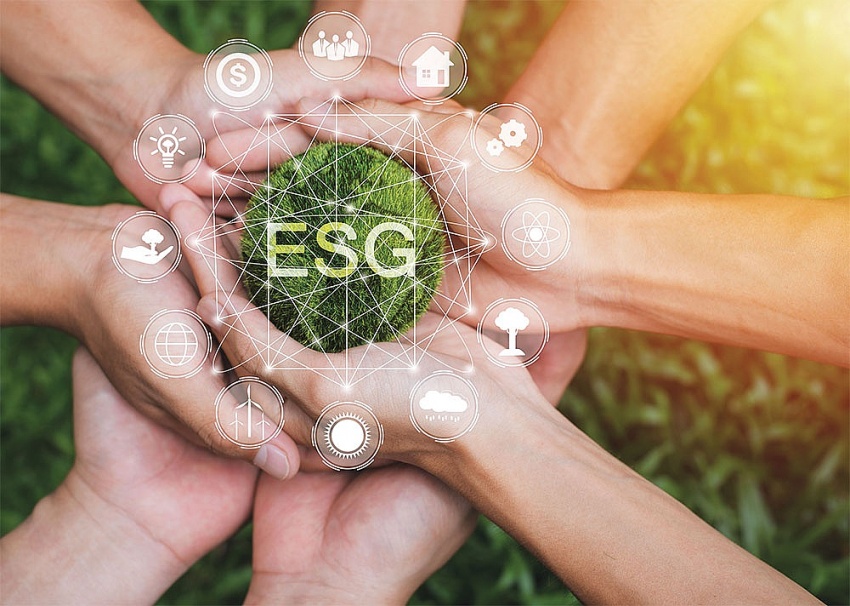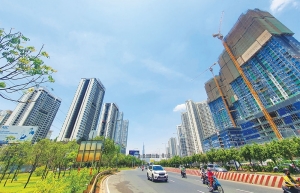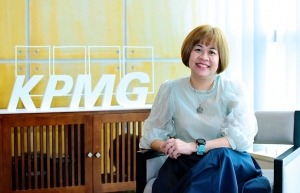The ESG imperative for people, the planet, and prosperity: Ipsos
 |
| The ESG imperative for people, the planet, and prosperity: Ipsos |
At a webinar on ESG imperatives on June 8 organised by Ipsos, a multinational market research and consulting firm with headquarters in Paris, experts said that the challenges set out in the ESG agenda are not news to the global public.
Inequality and corruption regularly feature among the top issues in Ipsos’ What Worries the World monitor, and 80 per cent feel that the world is heading for disaster if it does not change its habits quickly.
Simon Atkinson, chief knowledge officer of Ipsos, said that ESG challenges are some of the largest that the world faces today. Just have a look at some of the headlines from the past year – heat waves, wildfires, floods, gender and racial inequality, and a lack of focus on disabilities in the workplace. All of this relates to ESG.
"These are fundamental global issues, and these challenges are not going away anytime soon. While other issues like inflation may rise to the top of the list of concerns in the short term, ESG is here for the long term. These are not hurdles that will be solved overnight, and 80 per cent agree that we're headed for environmental disaster unless we change our habits quickly," emphasised Atkinson.
Business leaders are clear that ESG is already fundamentally changing the way their business operates. They acknowledge that poor ESG performance has material consequences.
When Ipsos asked people what part of ESG is most important for businesses to focus on, building society was ranked as the top priority globally at 42 per cent.
Earlier, Ipsos shared that social inequality is the number two global concern.
Lauren Denmar, Ipsos' chief sustainability officer and global head of ESG stated, "But this doesn't mean that citizens don't want businesses to focus on the environment. It was still ranked as the number one priority by 29 per cent of people in our recent Earth Day survey. They feel that if businesses in a country do not act now to combat climate change, they will be failing their employees and their customers."
ESG is about everything, everywhere, all at once. It is about how business affects the environment, including carbon emissions, pollution, recycling, waste management, and energy use. Likewise, it is about how a business treats its employees and customers, including through diversity and inclusion, human resource policies, safety, and charitable work. It is also about how a business is run, ensuring that it's managed ethically and in a way that manages risk. ESG is everywhere and it's global.
"When it comes to the environment, global citizens want it all. Reducing waste and pollution is an even hotter topic than climate change," said Denmar.
"Reducing the use of plastic, developing more environmentally sound products, and reducing greenhouse gas emissions are other actions that companies can take. These priorities have been very stable on-year and are generally consistent in regions across the world," Denmar continued.
Radhecka Roy, Ipsos' global leader, feels that strategic curation has presented a new analysis exploring the dimensions that influence sentiment and shape behaviours on whether the language and semantics around ESG can add to a sense of being overwhelmed or confused. He highlighted some examples of ESG through a cultural lens by looking at the US.
"Activism comes from a history of conquest, conquering the frontiers and taming the wilderness. Consumerism plays a huge role alongside the need to flaunt success and achievement, which is very much part of the cultural fabric. It seems to have contributed to a lot of the ills of ESG, and therefore brand choice becomes very critical," said Roy.
"So the attitude now is that we created the problem, but we also know how to fix it. It emphasises trying to control nature and the issues. It is an individualistic culture, and therefore there is a belief that every individual can have an impact to drive change," he added.
He also pointed out a very contrasting culture in India, where the ESG is very much about moderation.
"It's a culture that has always frowned upon excesses and overindulgence. So, the same approach is tsken with ESG. The feeling is that if everything is done in moderation, nothing will go askew. You can see that human aspects play a critical role. Also, there are a lot of nurturing and caring elements that focus on the relationship with nature," said Roy.
He added that Indians look to the government for guidance, and more, so they expect the business sector to play a key role in this and display leadership, which is true for a lot of emerging market cultures.
Despite the general agreement that inequality is harmful, it is actually widening in many parts of the world, impeding the progress and growth of individuals, companies, and countries. A new Ipsos guide looks at how research can improve understanding and help to close the gap.
Manuel Garcia-Garcia, Ipsos global leader in neuroscience, said that inequality is the root of all social ills.
"While we might agree or disagree with this postulate, we know that inequality has a negative impact on everyone in society, not just on those that are the recipient of unfair treatment. When we talk about inequality, we're talking about actually measured gaps in pay, access to opportunity, or in the treatment for some people versus others," said Garcia.
These include racial inequality, issues of gender or sexual orientation, social class, age, religion, neurodiversity, and disability.
"Despite general agreement that inequality is detrimental for all, it's actually widening in many parts of the world, including in major markets. So, we need proactive efforts to push for an equality agenda," urged Garcia.
Ipsos sees the primary concerns around inequality for STEM-specific groups, starting with those people with physical disabilities at the top, followed by women, people with mental health conditions, the LGBTQ+ community, senior citizens, and people from ethnic and racial minorities.
"We see that bias and inequality usually stem from a lie. It's a lie that eventually plays out in both conscious and implicit ways."
To illustrate, Garcia raised some examples like poor people not working as hard as rich people, women's work not being worth as much as men's, and other such absurd beliefs.
"Implicit bias occurs unintentionally, without conscious awareness. And these are metacognitive processes. They impact our decisions, our attitudes, our behaviour, and ultimately help perpetuate equality gaps," he added.
In the US, the racial wealth gap has widened since the 80s. Closing this could lead to an increase of 4-6 per cent of GDP by 2028. So, it is definitely not a minor issue.
"We see that 80 per cent of people globally agree that it's possible for a brand to support a good cause and also make money at the same time. It is clearly positive for business, so they need to make it a strategic priority," suggested Garcia.
 | The way forward to consider both sustainability and ESG Last year was not a good year for environmental, social, and governance (ESG) funds and their performance has been held back. After years of dramatic growth, investment in ESG securities has sharply declined, with research firm Morningstar reporting a 70 per cent drop in inflows compared to the year before and the number of new funds launched is down by 60 per cent. |
 | Office developers inclined to incorporate ESG standards Integrating environmental, social, and governance elements is the latest survival strategy for operators of leased office buildings, with experts noting that issues remain with post-pandemic workspace changes. |
 | ESG-centric businesses set to gain plaudits for long-term vision In a global economy, companies that do not implement environmental, social, and governance (ESG) criteria might be put at a significant disadvantage to their ESG-conscious competitors. Ha Do, KPMG’s newly appointed head of ESG in Vietnam, talked to VIR’s Linh Le about such considerations, stakeholder engagement across the country, and the evolving landscape globally. |
What the stars mean:
★ Poor ★ ★ Promising ★★★ Good ★★★★ Very good ★★★★★ Exceptional
Related Contents
Latest News
More News
- Vietnam suspends tours to Iran and Israel amid conflict (March 04, 2026 | 09:21)
- US-Iran conflict affecting asset prices (March 04, 2026 | 09:17)
- Insurers weather Q4 shock to deliver solid growth (March 04, 2026 | 09:16)
- Industrial real estate enters new cycle (March 03, 2026 | 15:17)
- Levanta acquires 80 per cent stake in 50MW Gia Lai wind farm (March 03, 2026 | 11:58)
- JAPEX withdraws from LNG terminal project in Haiphong (March 03, 2026 | 11:57)
- YADEA launches $100-million smart manufacturing plant in Bac Ninh (March 03, 2026 | 11:55)
- Middle East tensions set to test VN-Index, boost energy stocks (March 02, 2026 | 17:15)
- Agency of Foreign Trade warns of trade disruption due to Middle East conflict (March 02, 2026 | 17:11)
- MoF moves to expand farm insurance support and eligibility (March 02, 2026 | 16:54)

 Tag:
Tag:


























 Mobile Version
Mobile Version